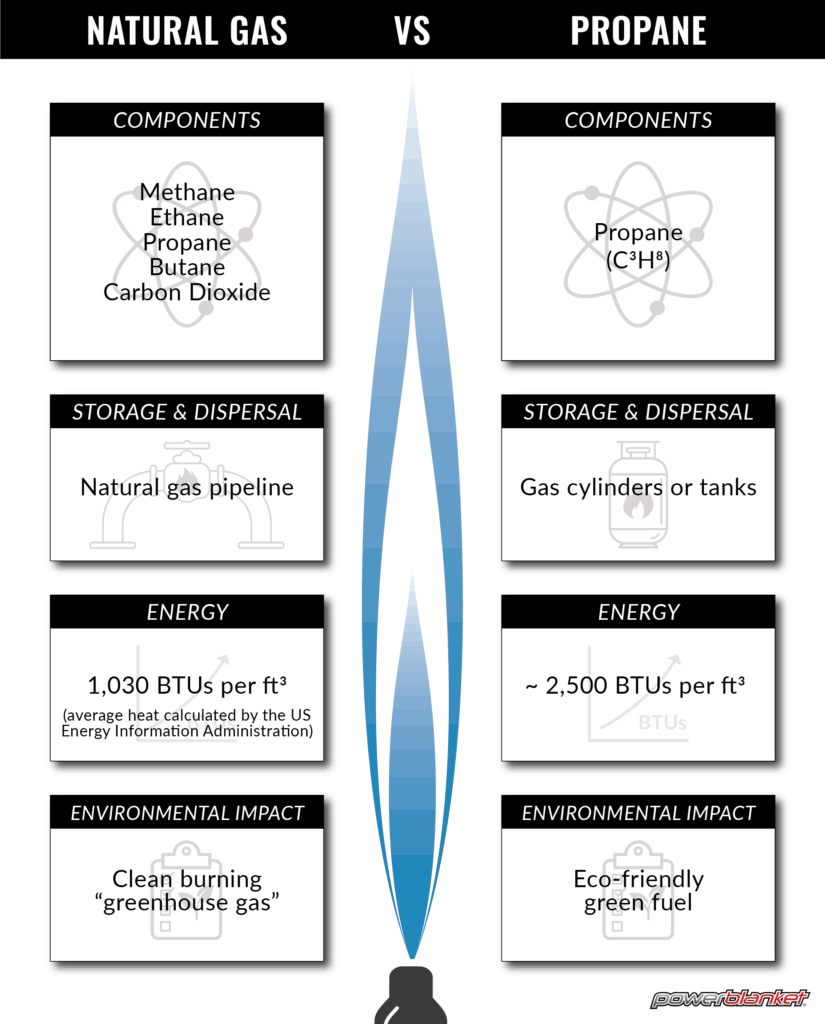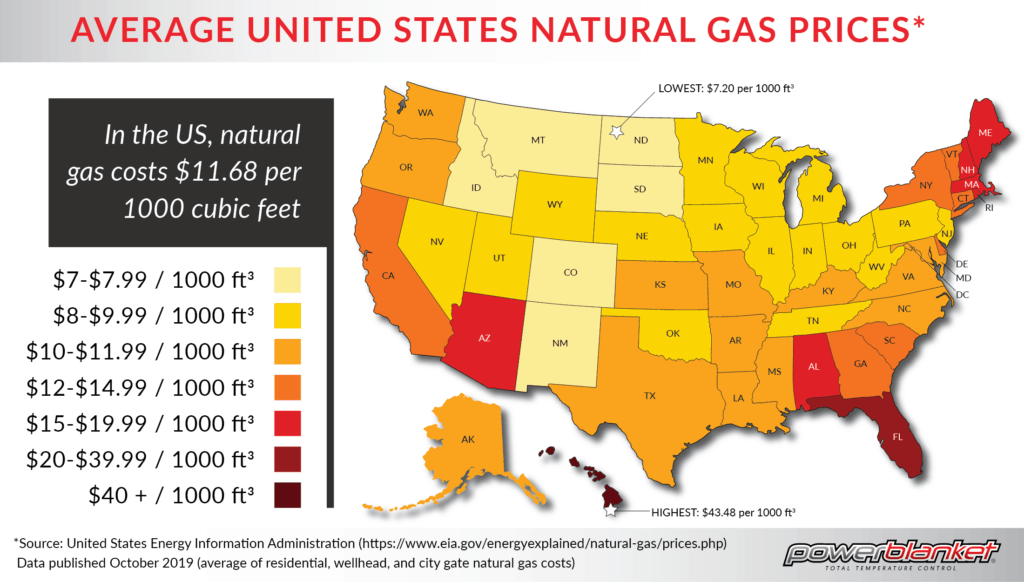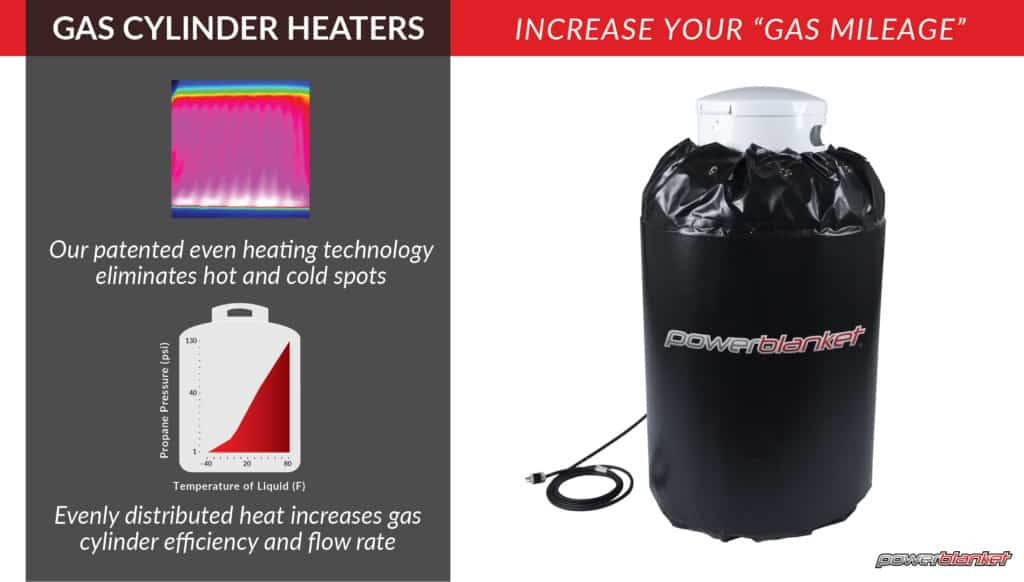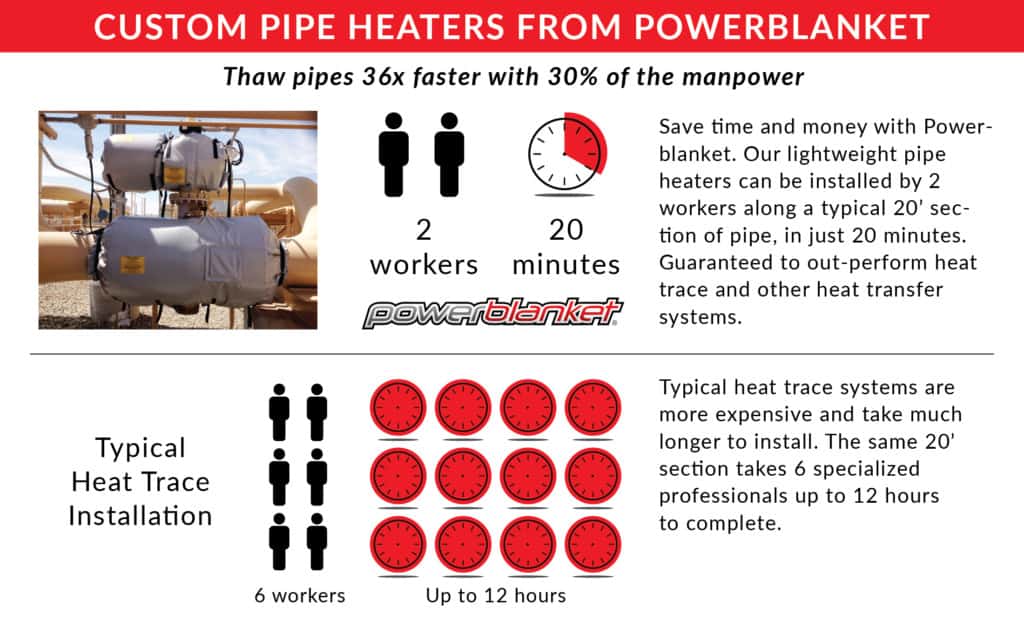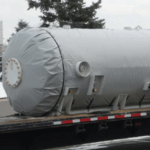WHAT IS NATURAL GAS?
True to its name, natural gas is a naturally occurring gas mixture that is formed from layers of decomposing prehistoric plant and animal matter deep in the Earth’s crust. This decomposing matter has endured immense heat and pressure for millions of years and is extracted as an energy source.
Natural gas is actually a mixture of many types of gasses. It is primarily composed of methane, then followed by smaller amounts of other gases like propane, ethane, butane, and carbon dioxide. Pockets of natural gas are typically found near other fossil fuel reserves like petroleum. After it is extracted, it is processed to remove water vapor and other impurities before it can be sold and used. It is piped to houses, business, and industrial centers to be used for gas powered appliances, fireplaces, machinery, and even specially modified LNG (liquefied natural gas) vehicles. It can also be condensed and sold in tanks.
WHAT IS PROPANE?
Propane is a gas composed of 3 carbon atoms and 8 hydrogen atoms (C3H8). At standard temperatures and pressures, it exists in a gaseous state, but it can be compressed into a liquid for storage and transport. Propane instantly turns back into a gas when released from a pressurized cylinder. It is a by-product from natural gas and petroleum extractions and is a commonplace, clean burning fuel. Propane is a very popular choice for fuel on the go and is frequently used for camping, cooking, industrial torches, and even some vehicles.
NATURAL GAS VS. PROPANE
Environmental Impact
Natural gas is technically labeled as a “greenhouse gas” due to the presence of methane and carbon dioxide, but is still considered clean burning. It is much more environmentally friendly than coal or petroleum gasoline.
Propane is also rated as a green energy source. It is considered environmentally safe both before and after combustion.
Energy Output
Propane is a much more energy efficient fuel than natural gas. 1 cubic foot of propane produces about 2,500 BTUs (British Thermal Units) of energy. 1 cubic foot of natural gas will produce about 1,030 BTUs of energy.
Safety
Natural gas is lighter than air and will dissipate quickly if dispersed into the atmosphere. Propane is a little more dense than air and will sink and take a little longer to vanish and disperse unless additional ventilation is used. Because of its density, and due to the fact that it is usually stored in tanks and cylinders, propane usually has more of an explosion risk. Both propane and natural gas are colorless and odorless. However, to make leak detection easier, a non-toxic oderant called mercaptan is added to both to create the smell of rotten eggs.
Cost
Propane costs will vary upon the distributor so price comparison will have to be conducted on a case by case basis. Natural gas prices are tracked by the US Energy Information Administration and the most recent data was released in October of 2019. Due to recent market fluctuations, OPEC oil and gas drama, and the Covid-19 pandemic, these prices are still greatly in flux.
Which Fuel Do I Use?
Natural Gas Applications
Because natural gas is easily piped to buildings, it is a wonderful choice for residential stoves, ovens, central heating, outdoor grilling, water heaters, dryers, and fireplaces. In fact, some cities recommend natural gas instead of wood burning fireplaces to help combat wintertime air pollution. According to geology.com over half of the homes in the United States are supplied with natural gas. A smaller percentage of our national natural gas is used in commercial buildings for central heating, water heating, and even to power air conditioners.
Natural gas has many industrial uses as well. It is used in the production of anti-freeze, fertilizer, chemicals, glass, steel, bricks, cement, ceramics, food, pharmaceuticals and fabrics. Natural gas is also commonly used for industrial incinerators. Over the last several years, LNG refueling stations have become more readily accessible. Because of the increased availability, more consumers, companies, and municipalities have access to natural gas as a cleaner and more efficient fuel source for vehicles.
Propane Applications
Propane has many of the same residential applications as natural gas, such as cooking, lighting, fireplaces, drying, grilling, heating, and water heating. Many consumers also purchase and store propane for camping and emergency generators. It is most commonly used as engine fuel for a wide array of industrial and agricultural machinery like forklifts, mowers, generators, welders, and torches. Environmental restrictions in recent years have encouraged consumers, farmers, and fleet vehicles to convert vehicles over to propane. Industrial uses for propane are expanding constantly. In addition to the applications listed above, it can be used in heat treating, plastic manufacturing, cutting, soldering, crop drying, fruit ripening, and more.
Powerblanket Gas Solutions
Here at Powerblanket, we specialize in custom heating solutions for a wide range of oil and gas needs. We also offer custom solutions that are certified for C1D2 hazardous locations.
Gas Cylinder Heaters
Using gas tanks and cylinders during cold weather can be a difficult endeavor. As temperatures drop, so does your ability to extract gas stores. Our gas cylinder heaters provide safe, even heating to increase flow rate and cylinder efficiency. For larger gas storage tanks, we offer quick custom solutions that are perfectly tailored to your specific needs.
Custom Pipe Heating
For gas pipeline delivery systems, Powerblanket offers custom pipe heaters that prevent hydrate formations and costly pipe blockages. Our world-class engineers are standing by to innovate custom tailored pipe heaters that fit your system like a glove.
Contact us today to find the perfect gas warming solution for your needs at 844-253-7838 or [email protected]
Frequently Asked Questions
Which is better, natural gas or propane?
Propane is often considered better for portable and off-grid applications due to its higher energy efficiency and lower emissions, while natural gas is more cost-effective and convenient for residential and industrial use where pipeline access is available.
Can natural gas appliances run on propane?
Most natural gas appliances can be converted to run on propane, but this requires specific adjustments due to propane's higher pressure and energy content.
Can you fill a propane tank with natural gas?
No, you should never fill a propane tank with natural gas, as the fittings and pressure requirements are different, posing significant safety risks.
Which is cheaper to heat with, propane or natural gas?
Generally, natural gas is cheaper for heating due to its lower cost per unit, but local prices and system efficiency should be considered for an accurate comparison.
Keep your propane tanks at the perfect pressure with Powerblanket.


